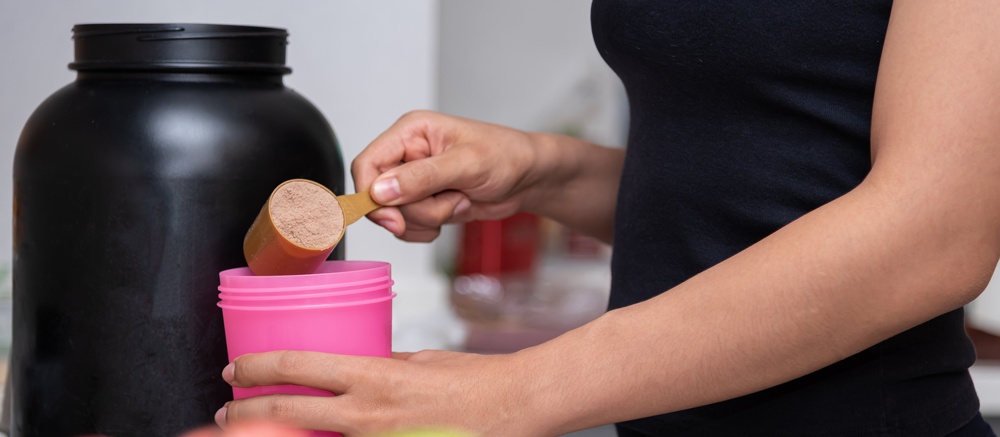When Post-Workout Protein Is and Isn't Essential: Understanding the Anabolic Window
October 08, 2021
"You need 30-60 grams of protein within 30 minutes of completing your workout" Is this really true?
It has long been held by workout enthusiasts that consuming protein immediately - within 30 minutes - after a heavy workout is vital to fuel new muscle growth. You've likely heard the hype about needing a protein shake immediately after lifting weights or running hard. This muscle-building theory is based on the idea that the muscles have a certain recovery and protein absorption reaction known as the anabolic window, and that only protein consumed during this window "counts" for optimal muscle growth. If you want your muscles to grow as much as possible from the workouts you do, they should be properly fueled.
While the central premise is sound, there's a bit more to the protein-to-muscle equation and the anabolic window than we first believed. As it turns out, you may have more time to consume your protein after all.
Building Protein Into New Muscle
When you lift weights or do cardio until you are sore, you are literally causing tiny tears in your muscle to inspire new, stronger muscle tissue to grow. You then feed your muscles protein so they have the building-blocks to build that new muscle. As your muscles cool down, you enter the anabolic metabolism state and your protein-hungry muscles can make the most of the protein you eat and absorb. However, the 30 minute anabolic window may actually be up to four hours wide, and can extend before your workout as well.
The answer is in the actual digestive speed of the human body, and your system's response to high-protein meals of both food and powders.
How Your Body Digests Protein
When you eat protein or drink a protein shake, it doesn't automatically transport through your muscles. First you digest the substance, then your intestinal walls absorb the protein as it passes through. If your body senses a lot of protein, it will actually slow down your digestion to better absorb everything and send those building blocks to your muscles through the blood stream.
Digesting takes a while, which is why any digestive window is often bigger than 30 minutes. Protein that is in your system when your muscles are hungry is what will be absorbed, and that's a two to four hour window after you work out.
Fueling Up Before a Workout
Another school of thought argues that it's best to fuel up on protein, or at least a few carbs, before your workout, and maybe after as well. It's true that you want a few existing calories in your system to burn as energy when you exercise, but want your stomach to be mostly empty to stay light and mobile during your workouts.
If you prefer to have your protein shake 30 minutes to an hour before your exercise, this is also correct because of the space of the anabolic window. That protein will be absorbing into your intestines about the time your muscles first start calling for reinforcements. In fact, some find protein before the workout provides a little extra power and holds back those cardio hunger pangs.
Protein After Your Workout
Having a protein shake or a protein-rich meal after your workout is a good idea to replenish your proteins, carbs, and other nutrients used up by the exercise and to fuel new muscle growth. However, if you're not hungry in that first 30 minutes (not everyone can eat while sweaty) that's okay. A meal or shake within the next two or four hours will still provide your muscles with the protein needed to take full advantage of your workout muscle building.
Eating Protein All Day for Best Results
With this new information about the anabolic window, eating protein before or after your workout is entirely up to you. Do what feels most comfortable and energizing, while still getting your advised amount of protein from food or supplemental powders.
What really matters, however, for steady muscle gain is eating protein steadily throughout the day. Why? So that your body is processing protein into muscle all day long, not just right after your workout. A 2013 study in the Journal of Physiology found that consuming 20 grams of protein every three hours provided more gains than consuming 40 grams every six hours. This means sipping small protein shakes, snacking on nuts, and eating regular but modestly sized protein-rich meals is the best way to make the most of a daily workout routine.
Should you drink a protein shake right after working out?
It can't hurt, but it's not as necessary as we've been led to believe. If you can't down calories while your heart is still pounding, that's okay! If you need to fuel up before you work out, that's also within the ideal metabolic window. Instead of worrying about when to eat protein before or after a workout, just be sure you're constantly intaking steady protein throughout the day so your muscles always have a supply of amino acids to build with, no matter when or where you find your daily exercise.
.png?width=258&height=54&name=Landice_logo%20(1).png)

